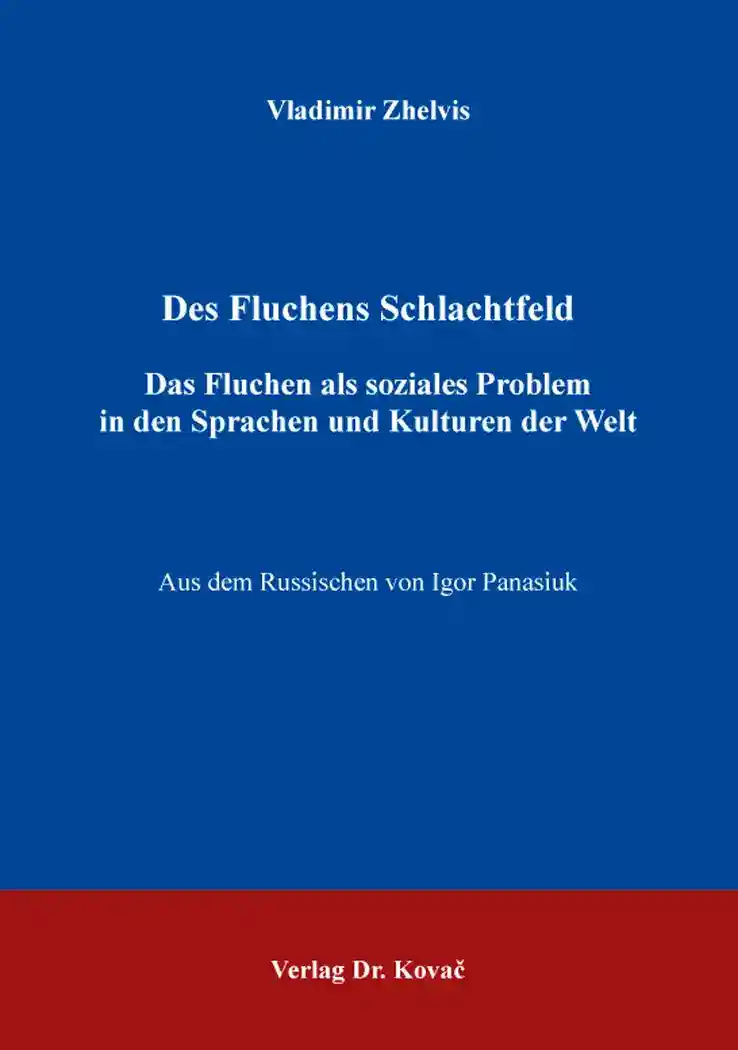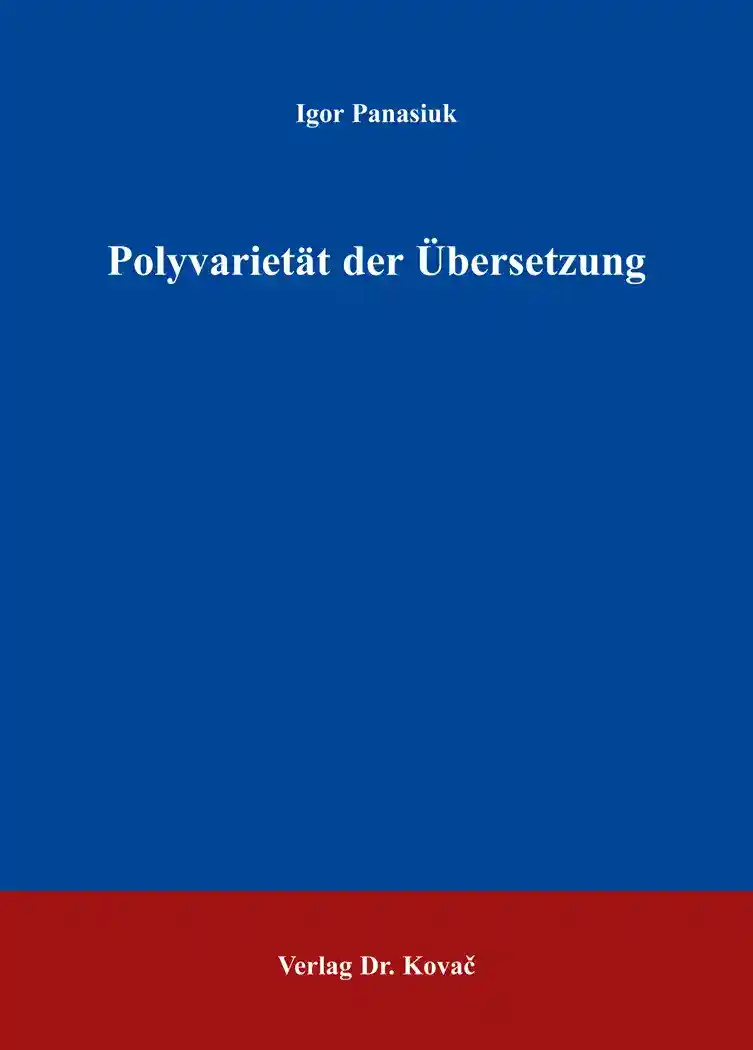Vladimir Ilych ZhelvisDes Fluchens Schlachtfeld – Das Fluchen als soziales Problem in den Sprachen und Kulturen der Welt
Übersetzt von Igor Panasiuk
Schriften zur Kulturwissenschaft, volume 123
Hamburg 2018, 410 pages
ISBN 978-3-339-10466-3 (print) |ISBN 978-3-339-10467-0 (eBook)
About this book deutschenglish
Russian philologist and specialist in cross-cultural communication Dr. Vladimir Zhelvis has devoted his book „The Field of Swearing“ to one of the most enigmatic language layers indispensable in each and every language and national culture. It is a list of words and collocations known to every man and woman and at the same time strictly forbidden or at least disapproved in polite society. Close analysis carried out by the author shows that humanity is simply unable to do without the aid of the vocabulary which, at the same time, it looks upon as unacceptable. Analysis of scores of languages shows that this vocabulary saw light with the birth of humanity, and it is evident that it will die with the death of the last homo sapience. They even say that the first man who cursed his opponent instead of breaking his scull with a stone hammer has laid down the foundation of human civilization. The Field of Swearing was published twice in the Russian Federation and was very well received by the reading public. The language and the easy style of the book are such that it may be appreciated by both scholars and the ordinary reader. For a long time the book occupied a place among the best-sellers in the whole of the country. Among the main ideas popularized in the book, is that the choice of swear words in a national culture depends on the cultural priorities. It is well known that the German national culture lists cleanliness, hygiene and ordnung first in the list of human virtues. Accordingly, the dirtiest German curses mention filth and dirt, while in many other cultures filth occupies second place or is even lower in the list of “bad words”. Those cultures pay much more attention to human sexual life and, accordingly, accuse the opponents of all sorts of sexual misbehaviour. The book abounds in examples of swear words in scores of languages from the most important European ones to the dialects of the tribes living in the remotest parts of the globe. Quotations from the oral talks, speeches and books by the most qualified and educated members of upper classes, including politicians, famous authors, actors, army generals, members of royal families etc. disprove the opinion that “bad language” is mostly the prerogative of the uneducated and the bad mannered.
Keywords
BlutEmotionenEthnopsycholinguistikFluchenGotteslästerungIgor PanasiukInvektiveKultursemiotikKulturwissenschaftLakuneNationalkulturenSexuelle InvektivenSkatologismenSpracheTabuVerbale AggressionWeltZoovokativeIhr Werk im Verlag Dr. Kovač

Möchten Sie Ihre wissenschaftliche Arbeit publizieren? Erfahren Sie mehr über unsere günstigen Konditionen und unseren Service für Autorinnen und Autoren.
Weiteres Buch des Autors
Hamburg 2016, ISBN 978-3-8300-8654-3 (Print) |ISBN 978-3-339-08654-9 (eBook)
[...] Insgesamt sei festgestellt, dass die Monographie von Igor Panasiuk einen innovativen Beitrag zur Überwindung der Kluft zwischen Übersetzungstheorie und…

